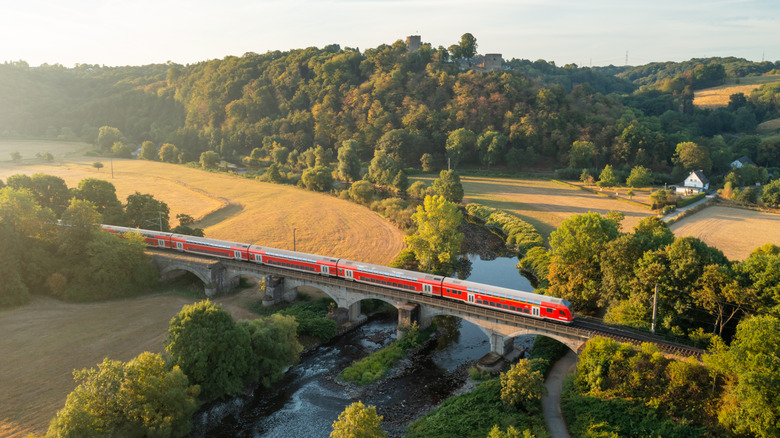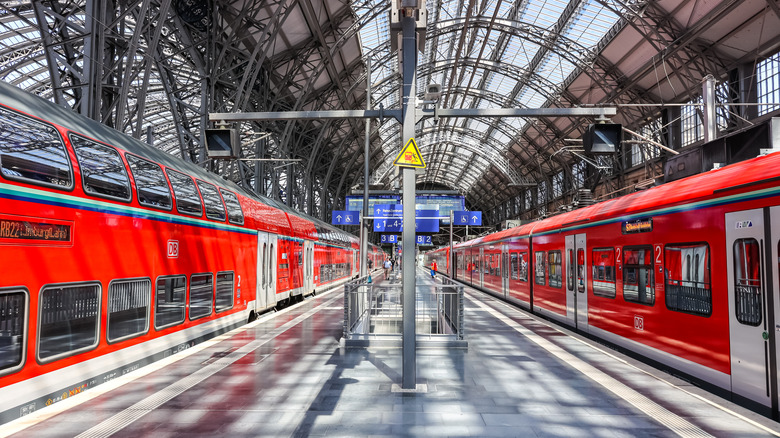Avoid Derailing Your Plans In Germany With This Common Mistake When Traveling By Train
Imagine you're traveling through Germany by train and you hear this: "We have a problem with our timetable. The people who do the signals think our train does not exist ... We have to wait." This startlingly candid announcement on a Deutsche Bahn (DB) train recently went viral after being recorded by Instagrammer foreignfootprints. But as funny as it sounds, the situation behind it isn't. As many Germans and countless tourists are learning, Germany's trains are frequently delayed and have a poor punctuality record. Assuming you'll arrive on time is one of several mistakes people make when traveling by train.
Surprised? You've likely heard that traveling by rail is the way to go in Europe. Even Rick Steves believes that train travel in Europe might be better than driving. Plus, Germany has a reputation for efficiency. But the reality is that just 64% of DB's long-distance trains arrived on time in 2023, according to their own statistics. And a 2024 report by Transport & Environment ranked DB near the bottom for reliability as compared to other European operators (Swiss Railways ranked top).
For many Germans, this is a daily source of frustration. For tourists, a delay can mean a late hotel check-in at best, and missed connections or even missed flights at worst. Never assume your train in Germany is going to be on time.
How to navigate Deutsche Bahn's delays
So, should you avoid German trains altogether? Not so fast! (Though that might be Deutsche Bahn's new slogan.) But seriously, train travel is still an excellent way to get around Germany if you plan carefully. First, the situation might not be as dire as it seems. DB trains are classed as "late" if they're delayed by more than six minutes, which isn't much in the context of a several-hour journey. If you need to make a connection, have a decent buffer between trains. Aim for at least 20 minutes.
Next, know your rights if your train is late. DB offers compensation of up to 50% of the ticket price, depending on the length of the delay you experience. If you miss a connection, you can hop on the next available train, provided that your national train was delayed by at least 20 minutes (hence our recommended buffer). If you're heading to the airport, build in a longer buffer.
Still, train travel is often much faster than going by road in Germany. For example, a road trip from Berlin to Munich takes around 6.5 hours, while the train can arrive in under four. Avoid tight connections and take the pressure off. You could even embrace the delay. Sleeper trains are a budget and eco-friendly way to get around, saving you a hotel bill. And if you arrive late, it just means you get to stay in bed longer.

